Free Range and Sounds New 2014
Veg Box Cafe, Canterbury
The end of an era. This was the last Free Range event to be held up at the Veg Box. Sam's on the lookout for a new venue, Mrs. Jones Kitchen on Sun Street being the current most likely candidate. A giant thankyou card was passed around furtively and signed for Adam and Liz who run the cafe and have been kindly hosting these events despite not being too keen on avant garde music and poetry. There have been something like 75 Thursday evening events since 2012, and I got to the great majority of them. On this occasion Sam played a solo piano improvisation, oblique local poet Ben Hickman read his "Melodrama for Poet and iPhone" (the iPhone producing some prerecorded material), the main set being provided by Automatic Writing Circle. AWC perform subtle improvisations with various wind and percussion instruments (I remember a ney and a frame drum...was there a cello?), all centred on their "Ouija instrument", which involves some kind of light-sensitive apparatus in a wide tabletop box draped in a sheet. Someone slowly moves their hands between it and a bright lamp, the shadowplay triggering sonic textures that the rest of the musicians work around. Not what I'd expected from the description in the Free Range pamphlet, but I liked it.
Sounds New festival opening
Sidney Cooper Gallery, Canterbury
Friday 2nd May 2014
This was the day before the final Piano in the Woods peformance, and the opening of the PITW exhibition. This featured thirteen of Neil Sloman's photographic prints (one from each of the monthly performances), each with a small MP3 player hidden behind it, loaded with my edit of each of the audio recordings on loop, and a pair of headphones attached. We were originally thinking about bringing the delapidated piano down and installing it in the space, but a video projection loop of the piano in situ was opted for instead (with minimal movement from a breeze lightly stirring vegetation). There was also a side room with a projection of Ben Rowley's two black-and-white films (the one of us moving the piano into place a year earlier, and a creepy "horror film" style exploration of the instrument several months into it's disintegration). Perhaps confusingly, the space was shared with Janek Schaefer's intentionally gaudy (and quite loud) sound installation Cloud/Cuckooland, and to try to tie in the Robert Wyatt theme the festival had chosen to go with, some text I'd been asked to supply had been stuck up on one wall in quite large vinyl lettering (not what I was expecting when I wrote it!). Originally I'd been asked to give a short talk on Wyatt (Janek was going to talk about his piece and Sam about PITW), but the organisers changed their minds about that and it ended up being more of a conventional gallery opening with people milling about drinking wine, not the best time to take in sound art really. Lots of speeches too, various CCCU people thanking each other and doing their best to promote the festival.
My text said the following, by the way:
The existence of a "Canterbury Scene" between the mid-60's and the mid-70's is something which has been argued about since the term first appeared in a late 70's music press article. Originally an attempt to describe a loose network of interconnected musicians recording and performing together in a seemingly endless array of permutations during those years, the term has led to confusion about the extent to which these musicians originated from, or were based in Canterbury. The (perhaps disappointing) reality is that very little of the music, and only a minority of the musicians associated with its namesake "scene" had much to do with the City of Canterbury. For example, Pip Pyle (1950–2006) had every reason to object to frequently being referred to as a "Canterbury musician", although this misnomer is understandable, as much of Pyle's musical career was framed by a set of musical relationships involving players who did originate from here (or whose careers were similarly framed).
It's curious, though, that Robert Wyatt, almost universally accepted as the leading creative light of the "Canterbury scene", rejects the term more vigorously than anyone else associated with it. Wyatt was born in Bristol in 1945, moved to Lydden (actually closer to Dover than Canterbury) as a child, and ended up as an unhappy pupil at Simon Langton Grammar School. Three fellow Langtonians (Hugh Hopper, Brian Hopper and Mike Ratledge) were to eventually play along side him in early Soft Machine lineups, and it was in Canterbury (while attending art college) that Wyatt had his first experience of drumming in a regularly gigging band, the moderately successful local danceband The Wilde Flowers. Through this group, Wyatt became associated with Kevin Ayers (living unhappily in Herne Bay with an aunt after a carefree childhood in Malaysia) and the four members of the original Caravan lineup. In 1966, Ayers and Wyatt's family's former lodger in Lydden, the Australian beatnik jazz poet and traveller Daevid Allen, recruited Wyatt into the original Soft Machine. After a couple of weeks rehearsing in a house in nearby Sturry, the band relocated to London and were immediately swept up in the vortex of psychedelic music and art that was erupting there at the time. From that point on, Wyatt's links with the East Kent were very tenuous (his father had died and his mother relocated to West Dulwich). However, an examination of his discography shows that Canterbury-originated musicians continued to be involved in his work for the decades that followed. But this was simply a musician choosing to work with old friends, with other musicians he felt personally at ease, than some kind of adherence to a musical "scene" or movement.
Perhaps it's unhappy memories that have led Wyatt to dismiss his connections to the place. Or perhaps it's his (widely acknowledged) humility, which won't allow him to take any credit for his central involvement in a small, collaborative group of creative young people whose combined body of work is bewilderingly extensive and continues to attract worldwide devotion and critical acclaim.
So did the "Canterbury scene" exist or not? Does it matter? Certainly it's something which only came into focus retrospectively. At the time, there was a group of musicians and friends working together, and with others, as part of a wide network of like-minded "progressive" musicians that was evolving in Britain. Some of them came from the Canterbury area, many of them didn't, but this wasn't of much interest while it was happening. It was only looking back and trying to make sense of what had happened that led to the idea of a clearly defined "scene".
But I would argue that the "Canterbury" tag for this loose network is as good as any other, if understood correctly. The whole idea of a "scene" is problematic, but a simple application of the branch of mathematics known as graph theory can be used to give the concept some kind of meaningful reality. Imagine all musicians represented as points or "nodes" in space, with pairs of these being joined by line segments or "edges" whenever they have collaborated on stage or in the studio. These edges can be thought of as being "weighted" according to the extent of this collaboration. Instantly, with these ideas, we have brought forth a huge, tangled web of nodes and weighted edges which geometrically represents the totality of all musical relationships which have ever occurred! And within this tangled web, certain areas of unusual density would be visible. These areas would not have clearly defined edges — they would be more like clouds. They are what are commonly known as "music scenes". If I were to point to one, you would see what I was pointing to and we could discuss it. But, like a cloud, if we started to discuss where it began and ended spatially, concensus would begin to break down. But the cloud is undeniably there. The "Canterbury scene" is such a cloud of musicians, and at its heart we find Wyatt, the Hopper brothers, the Sinclair cousins, Kevin Ayers and a handful of others strongly linked to the area. Robert Wyatt's disinterest in these matters is perfectly understandable. He made the music, he doesn't need to pick apart its socio-geographical context. But what would you call it?
The first sentence of the third paragraph had originally said "Perhaps it's unhappy memories of being bussed daily to a boring, conservative Grammar school in a boring, conservative market town that have led Wyatt to dismiss his connections to the place.", but I got asked to redact part of that, presumably to avoid offending any important civic dignitaries!
After enjoying an unannounced performance from PITW collaborators Slapdash (Tina Krasevic dancing and her partner David Leahy playing contrabass and dancing simultaneously, with clarinetist Tom Jackson) I was introduced to Brian Hopper, original Wilde Flower, Soft Machine saxophonist and older brother of bass legend Hugh. I remembered reading that he'd started on the clarinet, so we talked about that for a while, and I asked about his family home on Giles Lane (when the family moved in, when they sold up to the rapidly encroaching University, etc.). It turns out that it used to be called Denham[?] Cottage, and it was his mum who renamed it "Tanglewood". I pointed out that it's fitting that of all the UKC departments who could have appropriated the building, it was Hospitality Services, and hospitality (in allowing band rehearsals to go on there and long-haired bohemian youth like Robert Wyatt and Kevin Ayers to stay for extended periods) his parents' Billie and Leslie's legacy. He was enthusing about some new archival Hugh recordings that he's recently come across, live sets from a quickly assembled jazz quartet called "North and South", recorded up in Scotland in the 90s. Hugh's widow Christine and their daughter Rosa were there too, and Kevin Ayers' goddaughter (and niece of Robert's brother Mark) Katrina (who was able to persuade RW to provide a guest playlist for my last episode of Canterbury Sans Frontières). As I was leaving, Kevin Ayers' daughter Rachel (the inspiration behind his much loved song "Lady Rachel") introduced herself on the steps of the gallery.
As things wound down, people made their way over to Mrs. Jones' Kitchen for the first Free Range event of the evening. This began with someone creating sound art via live coding (their computer screen was projected above them so you could see some very high-level visually-oriented language being exploited to construct an increasingly dense soundscape that gradually engulfed the whole cafe). Some of the ZONE poets did a mass reading of various sonnets by an American poet called Ted Barrigan, another set from Slapdash, with organiser Sam Bailey on piano, and finally a performance of Trance Map, the concept/piece involving the great free jazz saxophonist (and Faversham resident) Evan Parker and (on laptop, sampler, turntable, etc.) CCCU sound art lecturer and Sounds New organiser Matt Wright. As with the last performance I saw them do, they had French lithophonic percussionist Toma Gouband guesting with them (tapping flints placed carefully on top of drums and cymbals). I'd been burning the candle at both ends for quite a while and was on the threshold of sleep for some of this, quite an appropriate state for listening to something of this nature.
The Saturday involved the final PITW peformance, and the next day I cycled off to the Smugglers Pop Up Festival and so missed a Led Bib gig and Evan Parker's 70th birthday concert, unfortunately.
Tuesday 6th May, 2014
Mrs Jones' Kitchen
Another Free Range special, this time with the intriguing Medway improv trio Hand of Stabs, a poet I really enjoyed called Carol Watts (which also happens to be my mum's birth name), clarinetist Tom Jackson, and Sam Bailey playing piano. The final, collaborative, piece was a great success. Hand of Stabs appeared to have a different guitarist this time (a bit younger, with a Sonic Youth sticker on his guitar, I noted approvingly), and the drummer had a more elaborate, but still primarily recycled, kit.
Wednesday 7th May, 2014
Mrs Jones Kitchen
Yet more Sounds New Free Range action, this time involving Arlet collaborating with the Leon String Quartet. The LSQ is conducted (and composed for) by Aidan, Owen and Thom's old Simon Langton schoolfriend Matt Brown, and he was keen to try this. The programme consisted of a short piece Aidan had written for Arlet plus additional violin and viola, then the most collaborative of the piece (said Aidan), written for the LSQ + clarinet, called "Fade to Green", and finally the main piece involving the whole of Arlet plus the LSQ. It was an interesting experience, listening to Arlet in this new context, impressive and intectually stimulating. But it was noticeable (discussing with others who were there later) that it appealed to the mind more than the emotional body or heart or whatever you what to call it.
A poet called Harriet Tarlo read, but despite being in the same general poetic realm as Carol Watts the night before, and just as likeable, her words having anything like the effect on me. And I'd find it almost impossible to say why.
Thursday 8th May, 2014
University of Kent at Canterbury
This was the first time I'd been in UKC's new Colyer-Fergusson concert hall. The event was billed as "Cuckooland Revisited", one of the centrepieces of Sounds New 2014, and involved Matt Wright on laptop/electronics, a singer called Elaine Mitchener and the Brodsky Quartet radically reworking the entirety of Robert Wyatt's Cuckooland album. When RW agreed to go along with CCCU's request to be thematically linked to their contemporary music festival, he suggested that he just hand over the master tapes (or files, I suppose) for that album so that various sound artists and musicians could work with them in various ways. Although the concert was well executed, clearly well rehearsed — a lot had gone into it — the concept seemed a bit forced to me. It hadn't really grown out of anyone's genuine enthusiasm for RW's music, or for that album in particular. So although parts of it were impressive and/or enjoyable I was mostly left wondering "why?".
Then it was back down the hill to Mrs. Jones for some very amusing, highly repetitive poetry from Jeff Hilson, plus poet Juha Virtänen and Sam Bailey's collaborative "What is Free Range?" piece, with cut-up video from Ben Rowley. Various Free Range attendees had been spontaneously interviewed in previous months, asked five simple questions, and the responses formed the basis of the spoken word and video, while the keys on Sam's keyboard had been programmed to trigger various words (me saying "colander" being used quite frequently, I noticed). Fred Rother, the drummer from Syd Arthur, featured heavily in the video, repeatedly saying "Um, I honestly don't know", then just "Um" on loop, and then joining a chorus of other people simultaneously seen and heard saying "Um". Juha even handed out a sort of libretto!
There were something like 37 Sounds New events over the course of the week, so it was inevitable that I missed a few things I'd have liked to have seen. Along with Led Bib, I was unable to get along to see a lunchtime concert from Yumi Hara Cawkwell, Robert Stillman's "Leap of Death" performance and the group Icebreaker playing Brian Eno's Apollo album (with big screen space footage).
I imagine Sounds New will be back in 2016.
























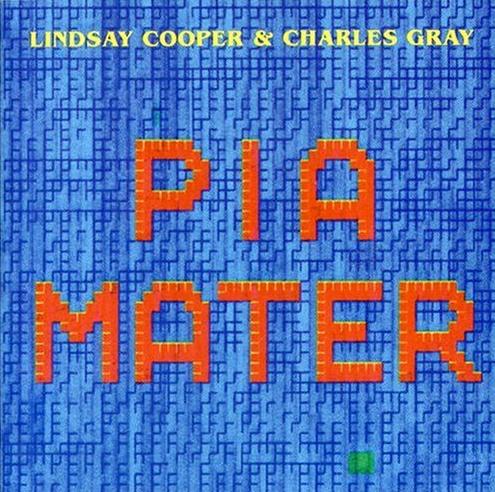
































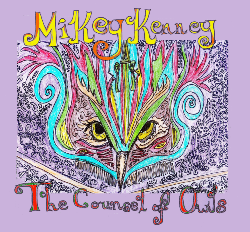



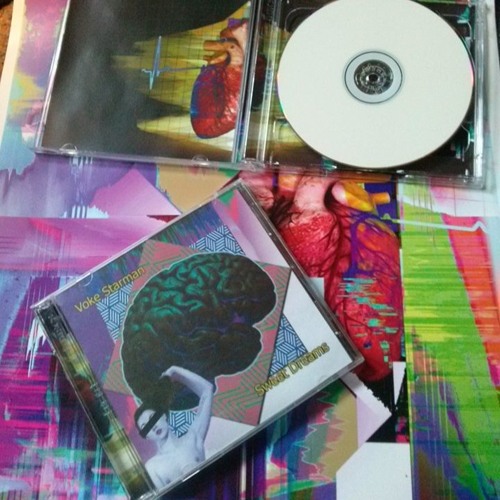



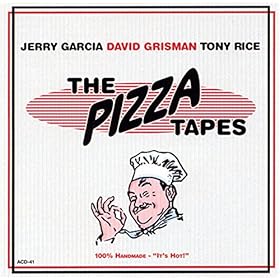

























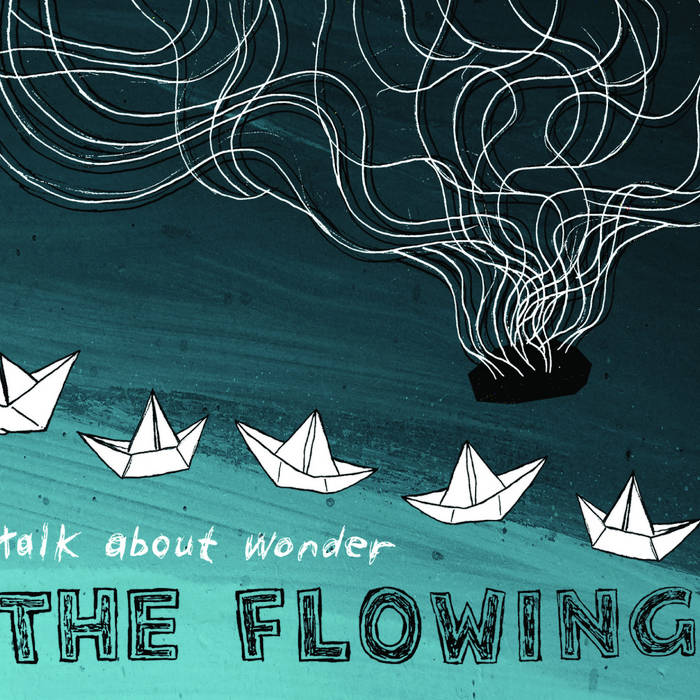












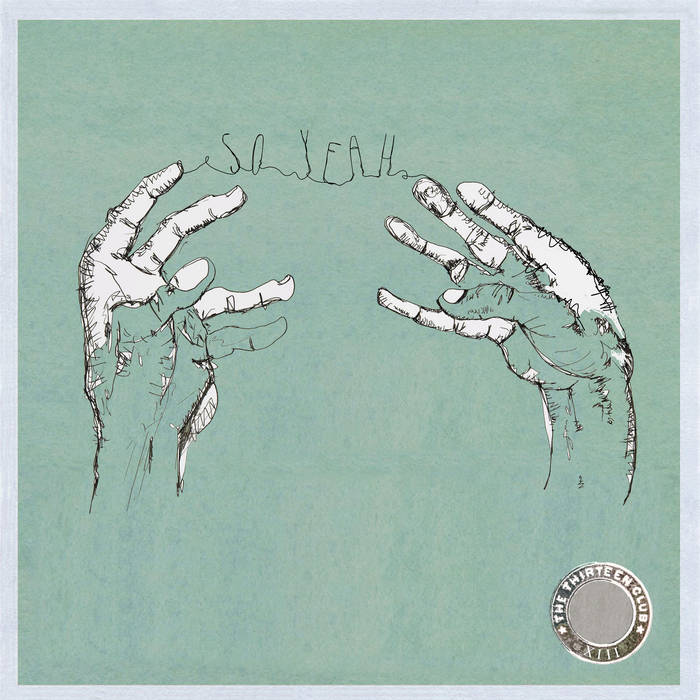







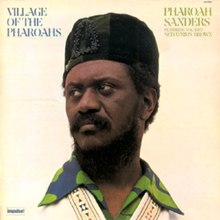







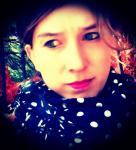



































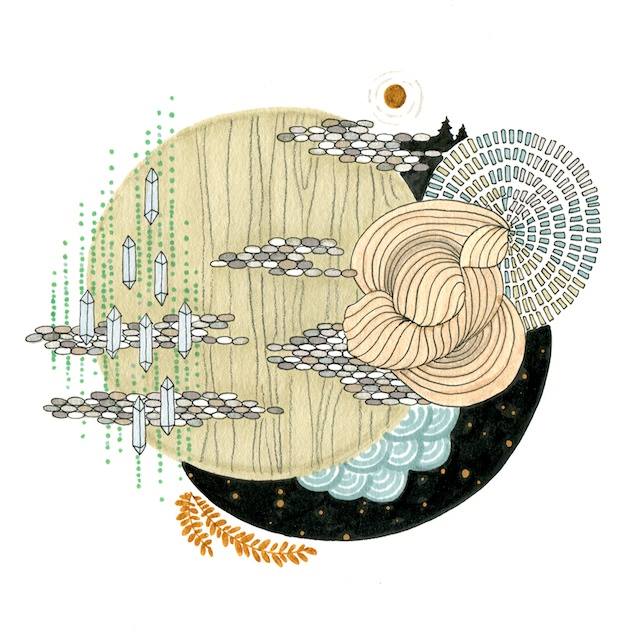





































































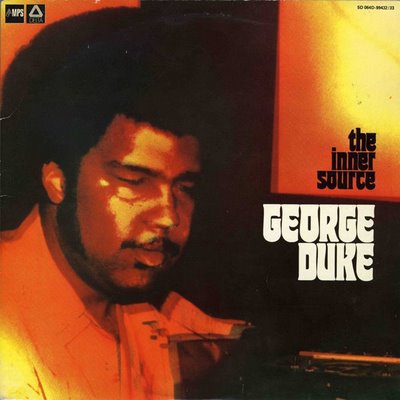












































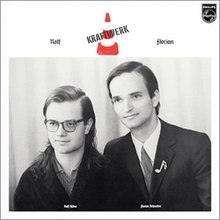


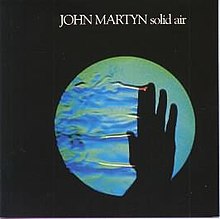




































































































































































































































































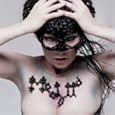














































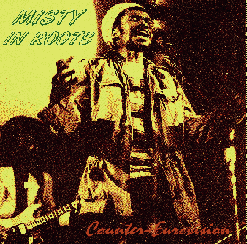





















































































































































































































































































































0 Comments:
Post a Comment
<< Home